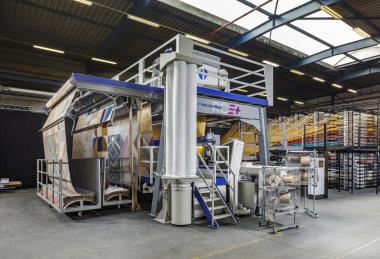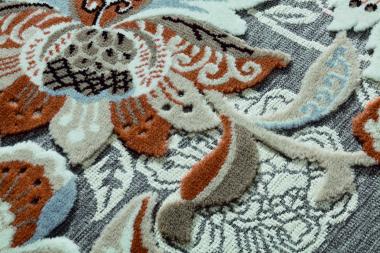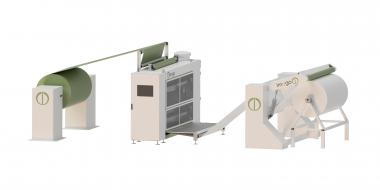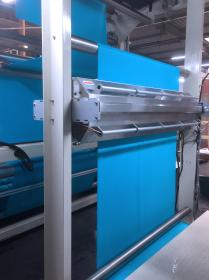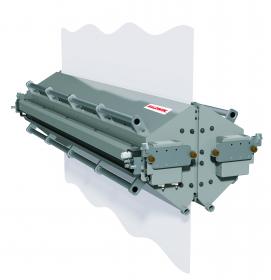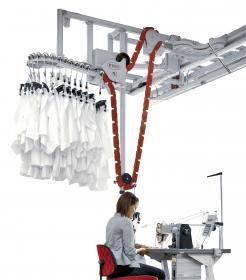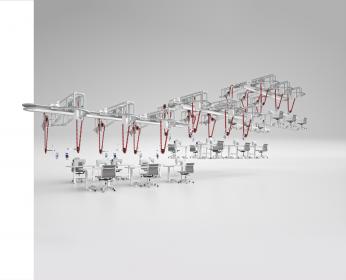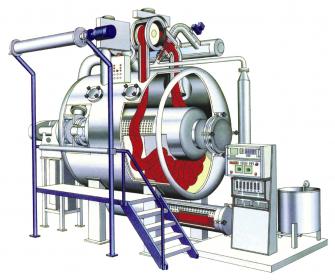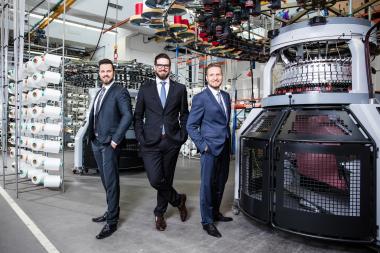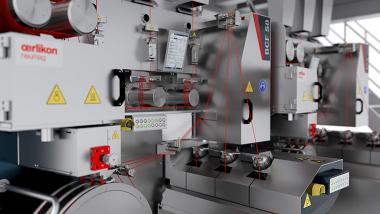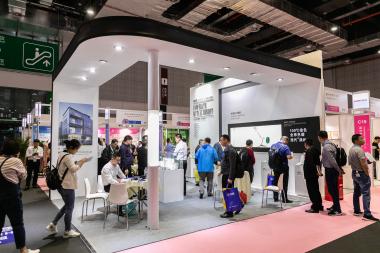The new Vandewiele RCE2+ digital carpet weaving machine at ITMA 2019
A wide range of new technologies will be demonstrated by Vandewiele at the ITMA 2019 textile machinery show in Barcelona from June 20-26, including the latest RCE2+ digital carpet weaving machine.
All Vandewiele technologies are now being equipped for machine-to-machine interaction and learning, as part of the company’s comprehensive TEXconnect programme.
Meeting new industry needs
As a leader in complete carpet manufacturing systems – including BCF extrusion lines, heat setting systems and carpet weaving and tufting machines – Vandewiele has rapidly responded to the evolving needs of the textile industry for smaller and customised production runs, the most challenging of designs, and faster and more sustainable manufacturing.
The company’s sensors, software programmes and servers have become increasingly sophisticated as part of the TEXconnect program, and the real-time data from different machines – across connected manufacturing sites and across different countries and even continents – can be collected and shared. Digital models of both machines and production processes can be created and analysed for the optimisation of production settings, to vastly improve scheduling and planning and also make considerable savings in raw materials and energy consumption.
Virtual and remote control now allows for the Big Data analysis that is propelling the industry forward and will pave the way for AI applications. For carpet manufacturers, all of this is leading to the creation of truly Smart Factories.
RCE2 carpet weaving
The new RCE2+ Rug and Carpet Expert weaving machine is a truly digital workhorse, with all yarns continuously controlled and measured and the difficult bobbin changes of the past completely eliminated. This is as a result of Vandewiele’s latest Fast Creel, with the feed and tension of each pile yarn controlled by individual servomotors.
The pile yarns are now fed directly into the machine without having to pass pile-stop motions, to both increase efficiency and eliminate any waste yarns, while achieving previously unreachable industrial speeds.
The filling enters the machine smoothly via the latest IRO X3 winders, heavy duty filling brakes with multi lamellas, an active yarn recuperator and a high speed weft mixer, where again, all tensions are set electronically. Vandewiele’s servo-driven heddle frames (Smart Frames) are meanwhile already well proven in the industry.
TEXconnect further provides readily-available data on all yarn consumption, tension and threading, and then will supply the predictive maintenance that is paving the way to self-learning carpet weaving machines.
All of this would be unnecessary, if it didn’t result in allowing manufacturers to make the highest quality carpets at the most economic prices ever, with savings on the highest-bulk pile yarns from the Vandewiele extrusion lines, reduced waste yarns in the creel and industrial production speeds that have never before been attained.


